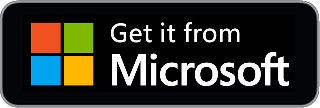Evolution of RSS Technology
Introduction
Rich Site Summary (RSS) has been a cornerstone of web technology for many years. Originating in the late 1990s, it has played a crucial role in content syndication, allowing users to subscribe to content updates from their favorite websites. While many technologies have come and gone, RSS has endured, adapting and evolving with the web itself. This blog post aims to delve deep into the evolution of RSS technology, exploring its inception, key milestones, challenges, and its current relevance.
The Early Days: Birth of RSS
RSS was initially developed in 1999 by Netscape, aiming to facilitate the distribution of content for their My Netscape Network. The idea was to simplify the process of delivering regularly updated information, such as news articles, directly to users. The earliest version, RSS 0.90, was rudimentary, focusing primarily on text-based content syndication. However, the concept caught on quickly and gave birth to a host of other versions, such as RSS 0.91, RSS 1.0, and RSS 2.0, each more advanced and flexible than the previous one.
RSS vs. Atom: The Format War
In the early 2000s, a parallel technology emerged by the name of Atom. Atom was often pitted against RSS due to its similar functions of web content syndication. Unlike RSS, which was primarily led by commercial enterprises, Atom was more of a grassroots effort aimed at solving some of RSS's perceived limitations. The rivalry, while fierce, resulted in both technologies pushing each other to evolve, with each borrowing features from the other.
Milestones and Innovations
Podcasts and Multimedia Support
One of the significant evolutionary milestones for RSS was the addition of enclosure tags in RSS 2.0, enabling multimedia content syndication. This new feature gave birth to podcasting, allowing audio files to be distributed efficiently.
Security Features
With the growth of the web, security concerns also became prominent. RSS technologies adapted by offering more secure feed options, including authentication and encrypted feeds.
Customization and Filtering
The next phase of evolution included feed customization and filtering options, which made it easier for users to receive relevant content. Technologies like OPML (Outline Processor Markup Language) became popular for exporting and importing subscription lists, providing greater user control.
The Rise and Fall of Google Reader
In 2005, Google launched Google Reader, a web-based RSS reader that became immensely popular. It simplified the RSS experience, attracting even the most non-tech-savvy users. However, its discontinuation in 2013 left a void and led many to speculate about the decline of RSS. Contrary to this belief, the demise of Google Reader sparked an increase in decentralized and independent RSS platforms, reviving the technology and emphasizing its importance in the internet ecosystem.
RSS in the Modern Web
In the age of social media, where content discovery is often controlled by algorithms, RSS has stood as a bastion of user-controlled information flow. Modern RSS readers have integrated with other services, offering features like social media sharing, and have also focused on improving the user interface, making it more intuitive and accessible.
Future Prospects
With the resurgence in interest around privacy and data ownership, RSS is poised for a comeback. Newer technologies and formats are being developed to bring RSS up to speed with the modern, dynamic web. These include efforts to make feeds more interactive, more secure, and more suited for real-time updates.
Conclusion
The journey of RSS has been a fascinating one. From a simple tool for content syndication to a complex technology that underpins a range of applications, RSS has proven its adaptability and endurance. As we move into an era that values user autonomy and data privacy, the stage seems set for another renaissance in RSS technology.
So, whether you're a developer looking to integrate RSS feeds into your application, or a user keen on taking control of your content consumption, RSS still holds great relevance. It's not just a relic of the past, but a technology that continues to evolve and adapt, much like the web itself.

